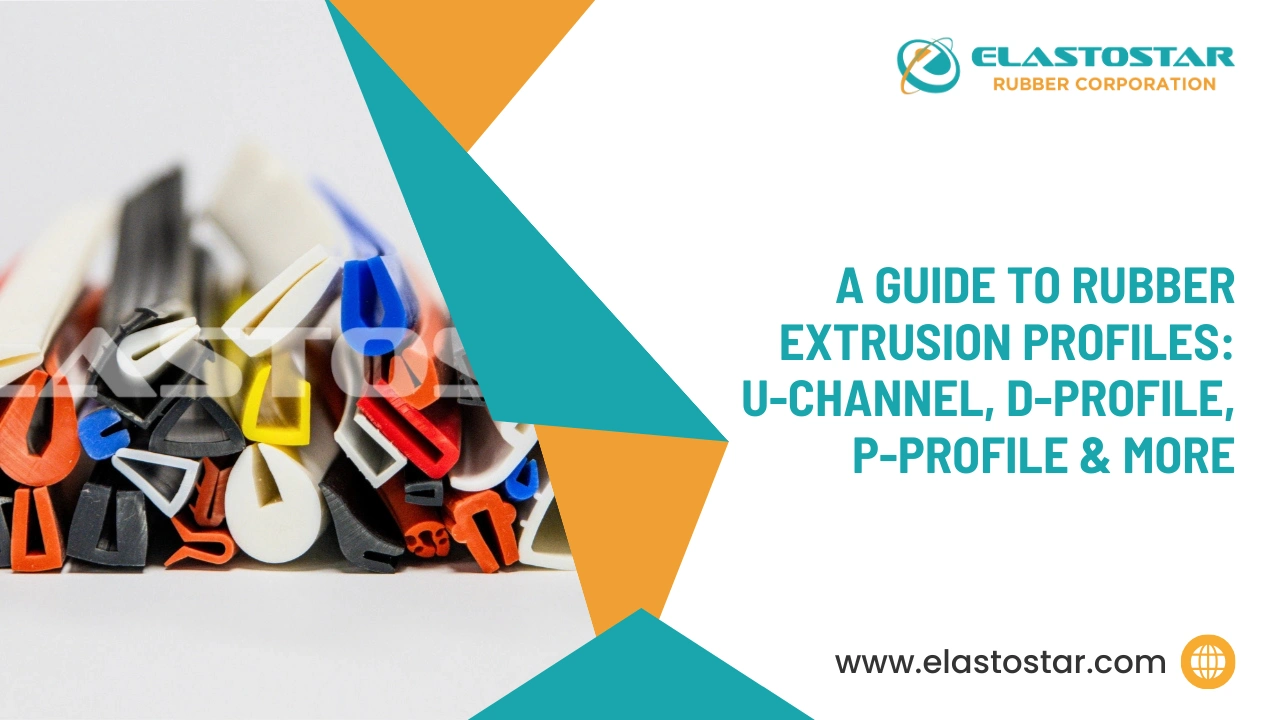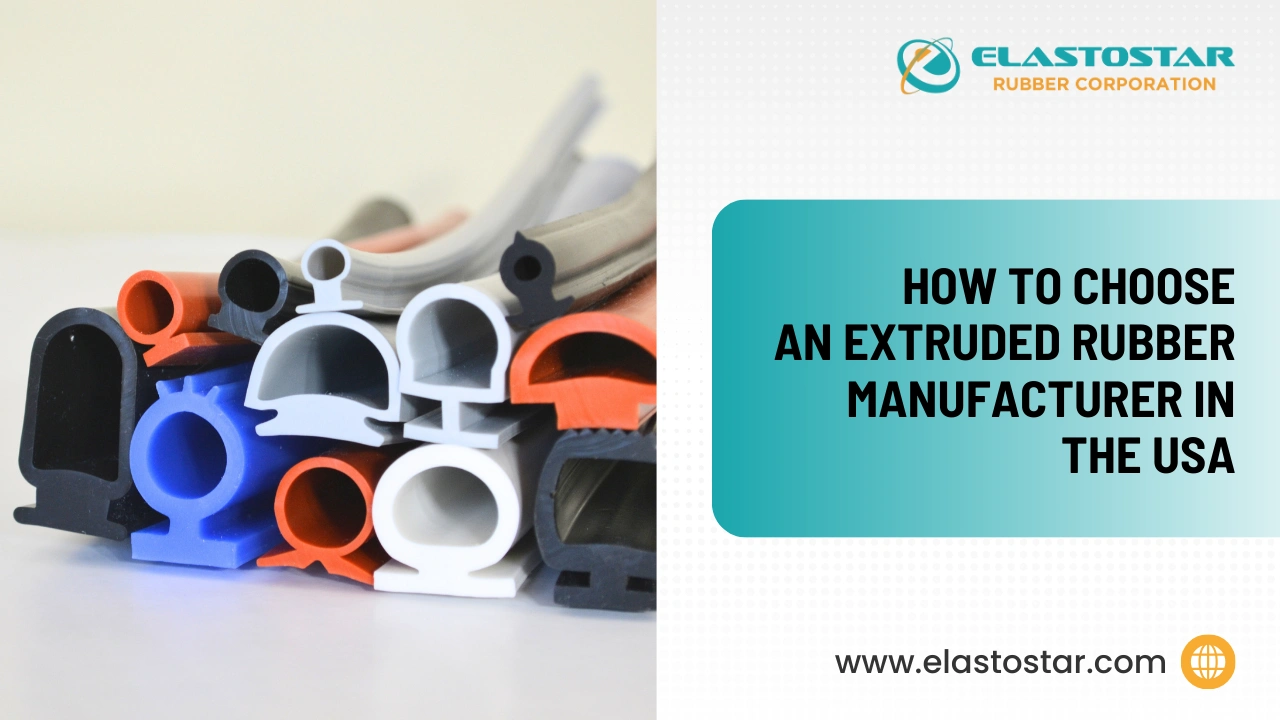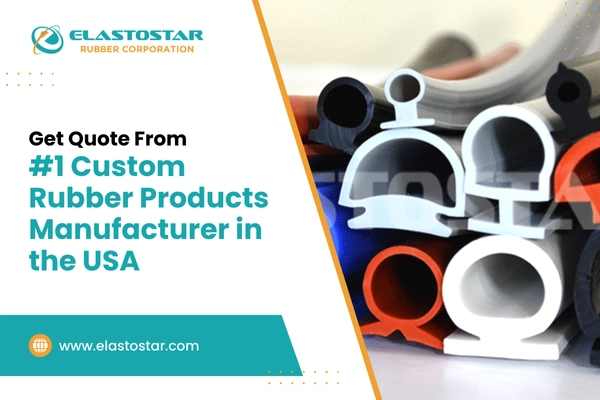Silicone rubber seals and gaskets are essential components in the automotive industry, playing a crucial role in the performance of various systems. From engines to doors and windows, these automotive seals provide effective protection against leaks, dust, and harsh conditions. Auto seals made from rubber are particularly valued for their flexibility and resistance to extreme temperatures, ensuring durability and reliability in vehicles.
So, what makes silicone rubber seals and gaskets so popular in the automotive industry?
Let’s take a closer look at the key reasons below.
Table of Contents
What are the Benefits of Silicone Rubber Seals in Automotive?
Silicone rubber seals provide numerous advantages that make them an excellent choice for automotive applications. These benefits not only improve vehicle performance but also enhance safety and longevity.
1. High Heat Resistance
Silicone rubber seals can endure extreme temperatures, making them ideal for sealing in engine compartments and other high-heat areas. Their ability to maintain integrity under thermal stress ensures reliable performance, even in tough conditions where other materials might fail.
2. Chemical and Environmental Resistance
Automotive rubber seals made from silicone are resistant to exposure to oil, fuel, and other automotive chemicals. This resistance enhances the safety and lifespan of the vehicle, as it helps prevent degradation. For instance, silicone seals used as seals for windows effectively protect against moisture, ensuring that seals remain effective over time.
3. Noise Reduction and Vibration Absorption
Silicone gaskets excel at dampening noise and absorbing vibrations, which is crucial for a smooth ride. This quality is particularly important for automotive door seals, as they minimize sound transmission and vibrations, contributing to a more comfortable driving experience.
4. Flexibility and Versatility
The flexibility of silicone rubber allows it to conform to various shapes and sizes, making it suitable for a wide range of applications. This adaptability enables effective sealing in complex geometries, such as those found in window gaskets and automotive door seals, ensuring optimal performance in diverse environments.
5. Longevity and Durability
Silicone rubber seals are known for their durability and resistance to aging. They maintain their properties over time, providing long-lasting solutions for automotive sealing needs. This longevity reduces the frequency of replacements, leading to lower maintenance costs for vehicle owners. Overall, using high-quality automotive seals helps ensure that vehicles operate efficiently for longer periods.
Top Applications of Silicone Rubber Seals & Gaskets in the Automotive Industry
Silicone rubber seals and gaskets are essential in various automotive applications, enhancing vehicle safety, efficiency, and comfort.
1. Engine Sealing
Silicone seals are vital in preventing oil, coolant, and fuel leaks within the engine. These automotive seals ensure that the engine operates efficiently and safely, maintaining optimal performance while reducing the risk of contamination. Their ability to hold high temperatures and pressure fluctuations makes them a critical component in any engine system.
2. Window and Door Sealing
In automotive applications, door seals rubber, and window gaskets are made from silicone to effectively block dust, moisture, and noise from entering the cabin. These auto seals rubber enhance passenger comfort by creating a tight seal, ensuring a quieter ride and protecting the interior from the elements.
3. Electrical System Sealing
Silicone gaskets are used in electrical junction boxes to guard against moisture and dust. This sealing is essential for preventing potential electrical malfunctions and ensuring that systems operate reliably. By utilizing quality automotive seals, manufacturers can enhance the overall safety of electrical components in vehicles.
4. HVAC Systems
Silicone rubber seals are crucial in the HVAC systems of cars, helping maintain temperature control and air quality. These seals prevent air leaks in ducts, ensuring that the system operates efficiently and provides a comfortable environment for occupants, regardless of outside conditions.
Why Silicone is Preferred Over Other Materials in the Automotive Industry?
Silicone rubber is a preferred choice in the automotive industry for several compelling reasons, particularly in terms of durability, resistance, and versatility.
1. Longevity and Durability
Silicone rubber offers a longer lifespan compared to many other materials, reducing the need for frequent replacements. This characteristic makes auto rubber seals a cost-effective solution in automotive applications, ensuring components remain reliable over time.
2. UV and Ozone Resistance
One of the key advantages of silicone rubber gaskets is their exceptional resistance to UV radiation and ozone. This quality makes them particularly suitable for automotive door seals and other exterior components, where exposure to the elements is common. By preventing degradation, silicone maintains performance and safety in
3. Versatility Across Multiple Applications
Silicone’s adaptability allows it to be effectively used in a variety of applications, from seals for windows to door sealing rubber. It performs well in both high and low-temperature environments, making it suitable for a wide range of seals automotive needs. This versatility simplifies production and inventory management for manufacturers.
Silicone Rubber vs. Other Materials
| Material | Heat Resistance | Chemical Resistance | Durability | Flexibility |
| Silicone Rubber | High | Excellent | High | High |
| Neoprene | Moderate | Good | Moderate | Moderate |
| Nitrile Rubber | Moderate | Excellent | Good | Low |
Importance of Quality Manufacturing for Silicone Rubber Seals
High-quality silicone rubber seals are essential for meeting the rigorous demands of the automotive industry. These seals are designed to perform reliably under extreme conditions, including temperature fluctuations and exposure to harsh chemicals, which is important for ensuring vehicle safety and efficiency.
Working with manufacturers that comply with industry certifications such as ISO 9001 and IATF 16949 is significant. These certifications ensure that the automotive seals produced meet strict quality and safety standards. For example, seals for windows and window gaskets must effectively prevent leaks and maintain cabin comfort.
Moreover, custom-designed seals are necessary for specific automotive applications. Auto rubber seals need to fit precisely to protect against dust and moisture while enhancing the vehicle’s performance. Effective solutions improve the overall functionality of automotive systems, ensuring that every component operates efficiently.
For top-quality silicone rubber seals, consider Elastostar Corporation. They offer a wide range of automotive seals designed to meet the unique needs of the automotive industry. With a commitment to excellence, Elastostar ensures that their products are durable and effective, providing reliable sealing solutions for various applications.

Conclusion
Silicone rubber seals and gaskets are crucial in the automotive industry due to their exceptional performance, durability, and resistance to environmental factors. Their ability to withstand extreme temperatures and effectively prevent leaks enhances vehicle safety and efficiency. Applications range from automotive door seals to window gaskets, providing reliable solutions for various automotive needs. Choosing high-quality auto rubber seals ensures optimal performance and longevity, contributing to the overall reliability of automotive systems.
FAQs
Why are gaskets used in the automotive industry?
Gaskets are used in the automotive industry to create a tight seal between two surfaces, preventing leaks of fluids and gases. They are essential for maintaining engine performance and efficiency, as they help protect components from contamination and reduce the risk of failures.
Why are gaskets and sealants important in automotive applications?
Gaskets and sealants are vital for creating tight seals between components, and preventing leaks of fluids and gases that can compromise vehicle efficiency and safety. At Elastostar Rubber Corporation, we offer high-quality silicone gaskets that are designed to handle extreme conditions, ensuring reliable performance and enhancing the longevity of automotive systems.
Why is rubber used in the automobile industry?
Rubber is commonly used in the automobile industry due to its flexibility, durability, and resistance to environmental factors. It provides effective sealing in various applications, such as automotive seals, gaskets, and tires, ensuring safety and performance in vehicles.
Why are gaskets and sealants required in vehicle systems and components?
Gaskets and sealants are crucial in vehicle systems to prevent leaks and ensure the proper functioning of components. They help maintain the integrity of systems like the engine, transmission, and HVAC, which is essential for vehicle safety and efficiency.
Why is silicone used in cars?
Silicone is used in cars for its excellent heat resistance, flexibility, and durability. It is ideal for automotive seals and gaskets, ensuring effective sealing in high-temperature environments while providing protection against chemicals and environmental elements. Elastostar Rubber Corporation provides high-quality silicone solutions specifically designed for automotive applications.




